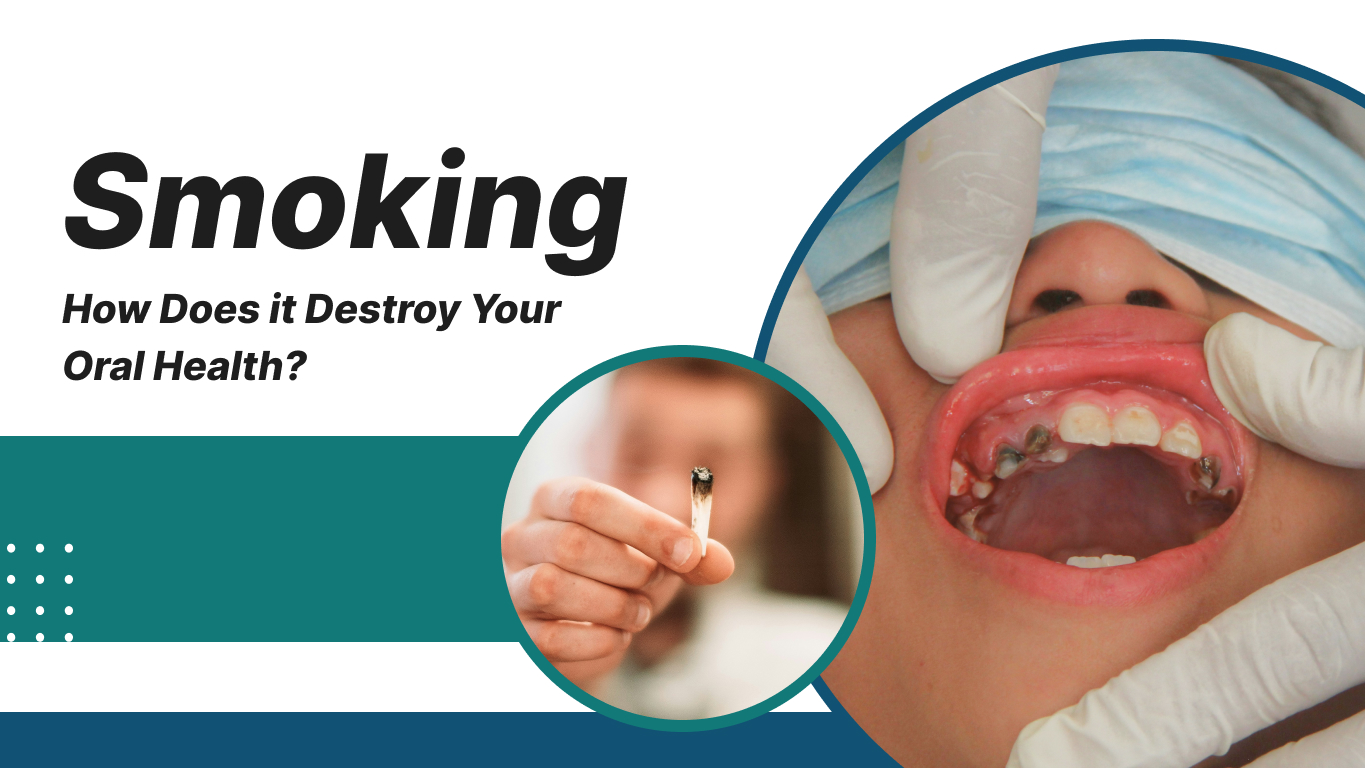When most people think about the dangers of smoking, lung cancer and heart disease typically come to mind first. However, the devastating effects of tobacco use begin the moment smoke enters your mouth, wreaking havoc on your oral health in ways that many smokers don’t fully understand. From stained teeth to life-threatening oral cancers, smoking creates a cascade of dental problems that can permanently damage your smile and overall well-being.
The Immediate Impact on Your Mouth
Smoking doesn’t wait years to show its effects on your oral health. Within minutes of lighting up, tobacco smoke begins altering the environment in your mouth. The heat, chemicals, and tar immediately start coating your teeth, gums, and soft tissues. This creates an ideal breeding ground for harmful bacteria while weakening your mouth’s natural defense mechanisms.
The most noticeable immediate effect is the yellowing and staining of teeth. Nicotine and tar penetrate tooth enamel, creating stubborn stains that worsen with each cigarette. Unlike surface stains from coffee or wine, tobacco stains penetrate deep into the tooth structure, making them extremely difficult to remove with regular brushing or even professional cleaning.
Gum Disease: A Silent Destroyer
Perhaps the most serious immediate threat smoking poses to oral health is its impact on gum health. Smoking significantly increases your risk of developing periodontal disease, with smokers being up to seven times more likely to develop severe gum disease compared to non-smokers. This isn’t just a minor inconvenience – it’s a progressive condition that can lead to tooth loss if left untreated.
Smoking affects gum health in several devastating ways. First, it reduces blood flow to the gums, depriving them of essential nutrients and oxygen needed for healing and maintenance. This compromised circulation means that even minor gum irritation can quickly become a serious infection. Additionally, smoking impairs the immune system’s ability to fight off bacterial infections in the mouth, allowing harmful bacteria to flourish unchecked.
The reduced blood flow also masks one of the key warning signs of gum disease bleeding gums. Many smokers don’t realize they have gum disease because their gums don’t bleed as readily as they should when infected. This delayed recognition often means the disease progresses to advanced stages before treatment begins.
Delayed Healing and Dental Treatment Complications
One of the most frustrating aspects of treating smokers is the significantly delayed healing process. Whether it’s a simple tooth extraction, gum surgery, or dental implant placement, smokers experience slower healing times and higher complication rates. The reduced blood flow and oxygen delivery to tissues means that what might take a non-smoker a week to heal could take a smoker several weeks or even months.
This delayed healing also increases the risk of infection following dental procedures. Compromised immune function and reduced blood flow create perfect conditions for bacteria to establish serious infections in surgical sites. Many dental procedures that are routine for non-smokers become high-risk endeavors for smokers.
The Link to Oral Cancer
The most frightening consequence of smoking is its strong connection to oral cancer. Smokers are six times more likely to develop oral cancer than non-smokers, and the risk increases dramatically with the duration and intensity of smoking habits. Oral cancer can affect the lips, tongue, floor of the mouth, cheeks, gums, and throat.
Early signs of oral cancer include persistent sores that don’t heal, white or red patches in the mouth, difficulty swallowing, persistent hoarseness, and unexplained bleeding. The tragedy is that many of these early symptoms are often dismissed as minor irritations, allowing the cancer to progress to more advanced and dangerous stages.
Beyond Cigarettes: All Tobacco Products Pose Risks
While cigarettes are the most common form of tobacco use, it’s crucial to understand that all tobacco products pose significant risks to oral health. Cigars, pipes, chewing tobacco, and even newer products like e-cigarettes all contain harmful chemicals that damage oral tissues. Smokeless tobacco products, in particular, cause severe gum recession, tooth loss, and dramatically increase the risk of oral cancer.
The Path to Recovery
The encouraging news is that many of the oral health effects of smoking are reversible once you quit. Within just a few weeks of quitting, blood flow to the gums begins to improve, and the risk of gum disease starts to decrease. Within a year, the risk of oral cancer begins to drop significantly and continues to decrease over time.
However, some effects of long-term smoking may require professional intervention to address. Severe gum disease may need specialized treatment, deeply stained teeth might require professional whitening or cosmetic procedures, and lost teeth may need replacement with implants or other restorative options.
Taking Action for Your Oral Health
If you’re a smoker, the best thing you can do for your oral health is to quit as soon as possible. Even if you’ve been smoking for years, quitting now can prevent further damage and allow your mouth to begin healing. Regular dental checkups become even more critical for smokers, as early detection of problems can prevent more serious complications.
At Carrum Downs Dental, we understand smokers’ unique challenges with their oral health. Our experienced team is committed to helping you maintain the best possible oral health, whether you’re working on quitting smoking or dealing with the effects of past tobacco use. We’re conveniently located at Shop T5, 100 Hall Road, Carrum Downs, and we’re open seven days a week from 9 am to 5 pm to accommodate your busy schedule. Don’t let smoking rob you of your smile – contact us today to schedule a comprehensive evaluation and take the first step toward healthier teeth and gums.
Related Post –
7 Tips for Improving Your Oral Health Before Sleep Time

